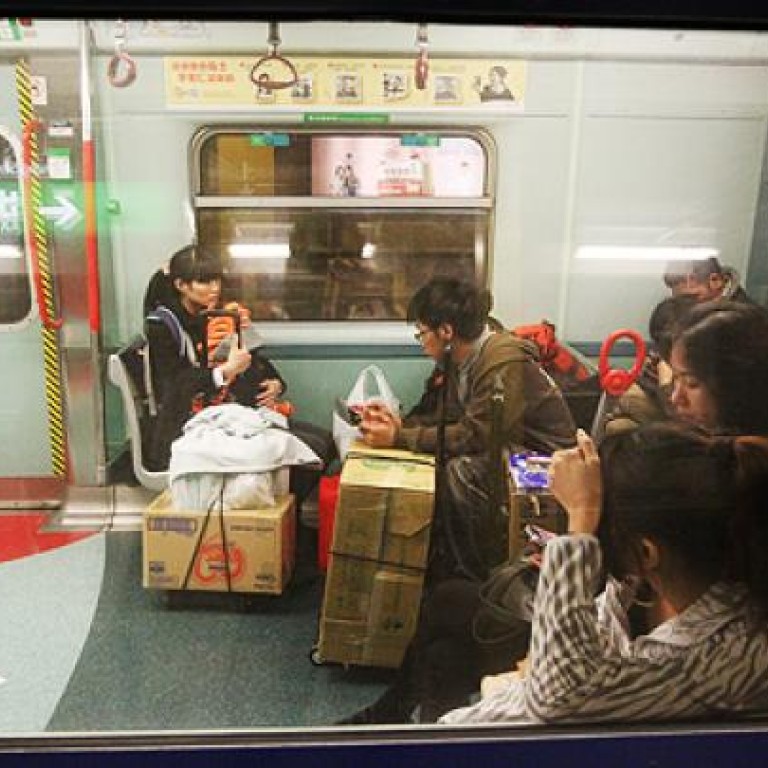
In world's priciest luxury city, baby formula is most precious commodity
Infant milk formula is a precious commodity 'kept under lock and key', and Hong Kong's budget woes
The Wall Street Journal on Monday tweeted an astounding fact on the high cost of living in Hong Kong.
Luxury two-bedroom apartments there typically sell for US$4.81 million. The cost of consumer products is also high, with milk going for about US$10.22 a gallon and gasoline selling for about US$8.10 a gallon, according to Knight Frank, a U.K.-based real-estate consultancy.
In New York, a typical luxury two-bedroom apartment sells for much less, US$2.135 million. And consumer goods in the survey are far cheaper, relative to Hong Kong.
But wealth is relative. Milk may cost more than gasoline, but infant milk formula in the city is less expensive than in the mainland.
That fact has driven up demand for the commodity as parallel-goods traders cross the Shenzhen-Hong Kong border to buy up milk powder for mainland mums sceptical of the quality of domestic products.
As such, baby formula is a precious commodity - “kept under lock and key”, the Los Angeles Times reports - as locals complain of a shortage.
Heartbreak in historic city
The South China Morning Post splashed on the tragic accident in Luxor, Egypt, in which nine Hong Kong tourists were killed when a hot-air balloon burst into flames in the air. Ten other victims were from France, Japan, Britain, Hungary and Egypt.
Everyone's a critic
Haunted? Who knows
For the explorer
- Conde Nast’s The Daily Traveler’s A to Z guide
R is for reflexology
Other coverage
- Filipino ‘cyberspace’ in Hong Kong Computer shop in Central has created a Filipino community built on technology, entrepreneurship and camaraderie.
- Canada’s golden immigrants from China remembered Exhibit called “Who Am I? Bridging the Pacific from Guangdong to Barkerville and Back” opens in Hong Kong.
- Hong Kong prefers portable bank account number, survey finds
- Urban density and landscape: creative solutions in Hong Kong The Mid-Level escalators, a tourist attraction unto itself, remain a well-traversed commuter corridor with nearly 43,000 people a day.
- Truckers chafe in Hong Kong air row City blames old trucks for 80 per cent of roadside pollution, the Wall Street Journal reports, but one trucker says “It’s unfair. Already our life isn’t easy.”
- Hong Kong is making its financial markets less transparent The Economist on the row over the trade-off between directors’ privacy and the public good.
- In cramped Hong Kong, a home under the bridge Group campaigns to build youth hostels, offices and temporary housing under flyovers.
- Hong Kong police on field trial with body-worn video camera


